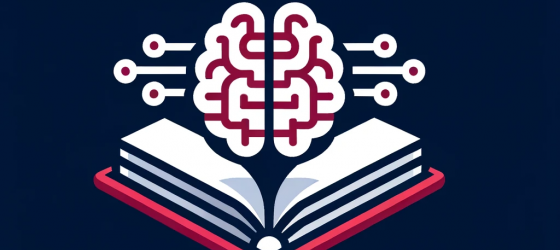Call for Abstracts (DH2025)
Digital Connections: A Dialogue around Languages, Arts, Cultures, and Technologies
26-27 June
University of Genoa
Digital Humanities (DH) represent an area of study at the intersection of computational methods and theoretical reflections specific to the humanities and social sciences (Ramsay, 2013), proposing a systematic use of digital methods and critical reflection on their application to the humanities and social sciences. With reference to the Digital Humanities manifesto produced as part of the ‘non-conference’ “THATCamp” held in Paris in 2010, DH is further presented as a way to form a globally connected interdisciplinary and multilingual community (Mounier, 2010).
This niche field has increasingly become a major and visible scholarly movement, marking a profound transformation in the global academic and cultural landscape. At a meeting organized by the “Association for Literary and Linguistic Computing” in 2002, Harold Short and Willard McCarty emphasized the importance of a model of methodological commons, that is a shared set of digital techniques and practices applicable across the humanities disciplines. In the model they developed, such methodological commons include interdisciplinary technical methods, new collaborations between sciences, and humanities and social sciences, combinations of data and technologies, formal data analysis, and large-scale source management (Hughes, 2015).
Given their nature, thus, Digital Humanities are seen as a multidisciplinary galaxy (Ciotti, 2023), a metaphor that underscores their variety of scholarly and educational experiences. Patrick Svensson, in his “Big Digital Humanities” (2016), expands this view by introducing the concept of ‘infrastructure’, understood both as an operational platform and as an intellectual space to foster dialogue between the digital and the humanities. Digital Humanities represent a mutual and valuable exchange between the humanities and social sciences, and the digital technologies. This exchange has also actively contributed to the advancement of the technological landscape by introducing critical and reflexive approaches. Significant examples include feminist and postcolonial perspectives, which highlight the biases embedded in the digital technologies and deconstruct their apparent neutrality (Risam, 2018). At the same time, the ethical debate around artificial intelligence, as highlighted in recent critical reviews (Prem, 2023), underscores the urgency of an interdisciplinary dialogue to build a more inclusive and informed technological future.
The advent of the digital technologies has changed, and continues to change, the methodologies common to the Humanities, generating new connections between different humanities. A connection that is made possible thanks to deeply interdisciplinary tools and appliable in multiple contexts such as Machine Learning (ML), Natural Language Processing (NLP), Large Language Models (LLMs), Virtual Reality (VR) e Mixed Reality (MR) for the artistic or educational field; or approaches such as distant reading (Moretti, 2000), scalable reading (Jockers, 2013) for literature analysis, Machine Translation, Technology Enhanced Learning (Timmis et al., 2015) for the educational field.
In the light of what has been previously stated, this conference aims to explore not only how digital tools have radically transformed practices and possibilities in humanities research, but also how the humanist’s critical and reflective approaches influence the Information and Communication Technologies (ITC). This bidirectional exchange favours a reflection on the transformations and connections these dynamics generate in art, languages, cultures, and, more broadly, the humanities.
Participants are invited to contribute with abstracts regarding the following three areas of research and their related technologies and methodologies:
- Multimedia technologies and digitisation for arts, entertainment and cultural heritage:: transformations in the production and reception processes of artistic and multimedia works, digital technologies for digitisation, preservation, and fruition of artistic, linguistic, architectural, documentary heritage, archival science, performing arts, virtual museums;
- Computational methods and technologies for linguistics, literatures, and cultures:: translation studies, lexicography, semantics, sociolinguistics, onomastics and toponymy; multilingualism and language interference, text analysis using AI, big data, NLP, corpus linguistics, computational linguistics, applied linguistics, analysis of literary works and information extraction from texts using digital approaches (scalable reading).
- Education technologies and digital learning environments: teaching strategies for learning, new technologies and artificial intelligence for teaching, game-based learning, special pedagogy, museum education.
LThe conference will be further enriched at the theoretical, methodological and application levels with precious contributions from national and international keynote speakers pertaining to the above-mentioned fields.
The Call for Abtracts can be downloaded at the following link: https://digitalhumanities.phd.unige.it/sites/digitalhumanities.phd.unige.it/files/2025-03/Call_for_Abstract_2025.pdf
The deadline for submissions is March 10, 2025 March 30, 2025.

